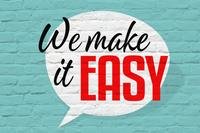During recent discussions with several recruiting and human resources professionals, I was reminded of some of the most important elements of a successful career transition strategy, including:
The need for flexibility.
While the economy has added more jobs in the past several years, at least 17 million people are still actively looking for a job today. Accordingly, it's important to have some flexibility on location, salary and management level. Consider that the firm that pays you a little less, but offers a good match with your skills, experience and passion could very well be the place where you'll do some of your best work.
LinkedIn is the primary tool many recruiters and HR managers use to find people in specific geographic areas with certain skill sets.
One corporate recruiter told me her company pays $3 million annually for expanded access to candidates in the LinkedIn database. Beyond the basics of having a robust profile and a range of connections at various levels of management in a variety of sectors, understand how to use people search, company search and job search within the constraints of the basic (and free) LinkedIn account.
The hardest leap in career transition may be going from military service directly into entrepreneurship.
One recruiter called this tantamount to going from an environment where there are rules for everything into one characterized by no rules. This reality makes franchising an interesting option for those who would like to be in business for themselves without going it alone.
Suspend judgment when a recruiter calls to discuss an opportunity.
While the location and salary may not be perfect, any reasonable offer deserves careful consideration.
Tailor your basic resume for the particular requirements of the position you are seeking.
Understand where the organization you are applying to is in its life cycle, and customize your resume to reflect the skills and experiences that organization requires, depending on whether they are a startup, realignment, turn-around or a sustaining success situation. Cover letters and cover emails also need to be customized to reflect the unique needs of the organization and your ability to meet those needs.
Use information interviews to expand your network and gain insight into the challenges confronting various organizations and job sectors.
Start with people you know well who have successfully transitioned and gradually expand to include strangers with whom you have some common connection, such as military service, school or the local community. Send a personal biography as a read-ahead prior to the meeting and always ask for referrals to new connections and feedback on your resume.
Many companies are looking for evidence of a commitment to community service in job candidates.
Significant philanthropic work, including membership on nonprofit boards, can be an important differentiator on a competitive job market.
Consider preparing talking points for problematic interview questions, such as a layoff or an ethical lapse.
However, remember that for hard questions, the shortest answer is usually the best answer.
Find the Right Veteran Job
Whether you want to polish your resume, find veteran job fairs in your area or connect with employers looking to hire veterans, Military.com can help. Sign up for a free Military.com membership to have job postings, guides and advice, and more delivered directly to your inbox.











